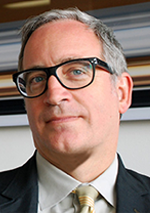4 Unexpected Stroke Side Effects
For a senior, surviving a stroke is only half the battle.
Strokes rank fourth on the nation’s list of top causes of death, but according to the U.S. Census Bureau, they are the number one cause of long-term disability among older adults. About 15% of people who experience a full-blown stroke (ischemic or hemorrhagic) die within 30 days.
More than half of Medicare recipients who outlast an initial stroke attack must undergo some form of formal inpatient rehabilitation, according to the American Heart Association. Of those healthy enough to return home immediately after being released from the hospital, nearly a third must recruit a home healthcare service for help.
The side-effects of stroke vary from person to person, depending on what areas of the brain are being deprived of oxygen, and for how long.
Here are a few unexpected side effects of strokes, and how to handle them:
- Inappropriate behavior: One issue that often crops up for stroke survivors is erratic, out-of-place behavior (i.e. laughing when nothing is funny, crying when nothing is sad), according to Damon Raskin, M.D., a board certified internist and medical director for two skilled nursing facilities. This kind of behavior is typically a symptom of Pseudobulbar Affect–a little-known neurological disorder.
- Extreme fatigue: Trying to recover from a major health event like a stroke can be extremely draining. “It’s very mentally and emotionally exhausting not being able to function as you once were able to,” says Raskin. Post-stroke fatigue goes beyond just being “tired.” According to the National Stroke Association, low energy levels can strike stroke survivors without warning, and simply getting more rest won’t always fix the problem. Medications, diet, disrupted sleep, and mental health issues can all play a role in increasing a person’s level of post-stroke fatigue. Caregivers should consult a doctor if their loved one seems unnaturally tired. The doctor should be able to identify what is causing the fatigue, and how to fix it.
- Sleep troubles: Having a stroke may cause a person to develop breathing problems, such as obstructive sleep apnea, which can interfere with sleep. The neurological changes associated with a stroke may also impact a person’s natural circadian rhythms, causing them to sleep during the day and be awake at night.
- Mood swings: Depression strikes about 35 percent of stroke survivors and is severely underdiagnosed, according to the National Institutes of Health. Post-stroke depression can be brought on by a combination of biological changes stemming from the physical brain damage caused by the stroke, as well as the ongoing psychological issues of loss of independence and reduced quality of life.
Coping with the after-effects of a stroke can be an extremely frustrating for caregivers and their loved ones.
Raskin says patience is of paramount importance when caring for someone who has had a stroke. “Many people aren’t used to relying on others for their basic needs. It’s a constant reminder that they are victims of an illness,” she says.






